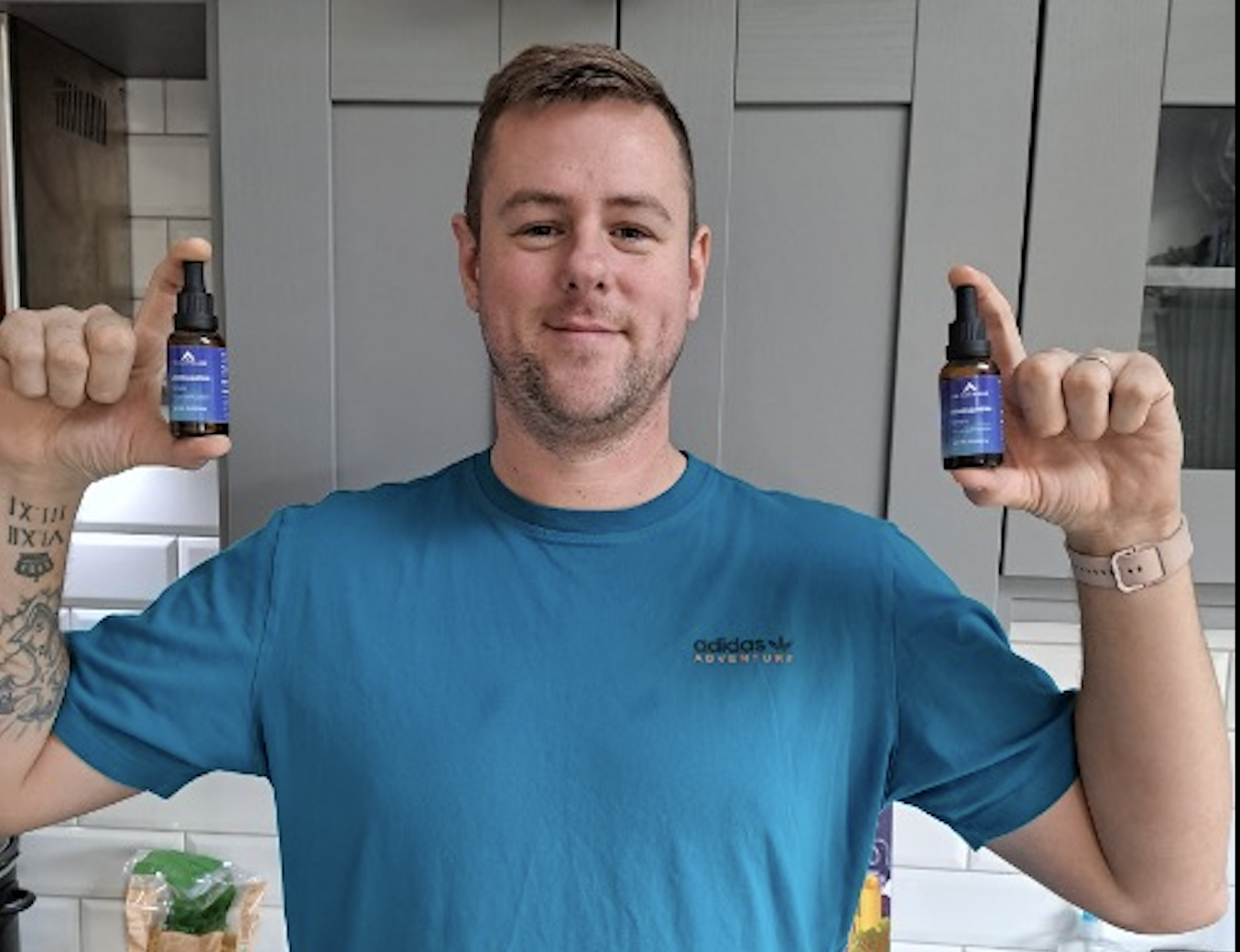CBD oil has become a hot topic lately. From health forums to dinner table chats, it seems everyone is curious about this natural wonder. As more people consider trying CBD for its potential benefits, many wonder about its safety and how it might interact with the body’s natural processes.
One big question that keeps popping up is: How does CBD oil affect blood clotting?
Blood clotting is like the body’s emergency brake. When we get a cut or injury, clotting stops us from bleeding too much. But if clotting happens when it shouldn’t, it can cause problems. This makes it super important to know how anything we consume, including CBD oil, might affect it.
So, let’s dive deep and see what science has to say about CBD oil and its relationship with blood clotting.
RESEARCH ON CBD OIL & BLOOD CLOTTING
Let’s examine some key findings from various studies:
EFFECT ON PLATELET AGGREGATION
CBD may influence platelet aggregation. While some studies have suggested a reduction in platelet aggregation with CBD [2], others emphasise that the exact relationship is still under investigation.
Platelets are fundamental to blood clotting, meaning any influence CBD has on them could indirectly affect clotting.
INTERACTION WITH MEDICATIONS
CBD has potential interactions with anticoagulant medications. It might augment the effect of these drugs, potentially leading to prolonged bleeding times [3].
It’s crucial for individuals on such medications to consult with healthcare professionals before introducing CBD.
CBD’S ANTI-INFLAMMATORY ROLE
CBD’s anti-inflammatory properties are well-documented [4]. Given that inflammation can sometimes precede clotting, CBD might indirectly influence clot formation.
VASCULAR EFFECTS OF CBD
There are indications that CBD might produce vasodilatory effects, meaning it can help dilate blood vessels. This vasodilation can influence blood pressure and flow, which indirectly relates to clotting [5].
UNDERSTANDING CBD OIL
CBD, or Cannabidiol, is a primary compound extracted from the cannabis plant. Unlike its counterpart THC (tetrahydrocannabinol), CBD doesn’t induce a psychoactive effect.
PRIMARY USES OF CBD OIL
Though still under thorough research, CBD oil has shown promise in reducing anxiety, pain management, and several other potential benefits [1].
BLOOD CLOTTING & ITS IMPORTANCE
Blood clotting is vital. It prevents excessive bleeding during injuries. However, abnormal clotting can lead to health concerns, making it crucial to comprehend the effects of various substances on this process.
THE MANY WAYS TO ADD CANNABIDIOL TO YOUR DIET
CBD can be incorporated into your daily routine in several ways. There are
- Tinctures: Placed under the tongue, they offer a direct absorption route.
- Edibles: CBD Gummies, these are a tasty way to consume cannabinoids.
- Capsules: For those who prefer a no-fuss method.
- Topicals: Creams and balms for direct skin application, often used for localised relief.
- Vaping: Though effective, it’s essential to ensure the safety and quality of vape products [6].
NATURAL WAYS TO MANAGE BLOOD CLOTTING
Other ways to consider managing your health naturally when it comes to blood clotting:
Dietary Choices: Foods rich in omega-3 fatty acids, like flaxseed and fish, can support healthy blood.
Regular Exercise: Physical activity can promote good circulation.
Limiting Alcohol and Caffeine: Both can affect blood consistency.
Staying Hydrated: Proper hydration can help maintain optimal blood viscosity [7].
MORE READING: CBD OIL & THE URETHRA
HOW DO HEMP CANNABINOIDS WORK IN THE BODY?
Hemp, a variety of the Cannabis sativa plant, is renowned for its myriad cannabinoids. But what exactly are cannabinoids, and how do they interact with our bodies?
WHAT ARE CANNABINOIDS?
Cannabinoids are a group of compounds found in the hemp plant. While THC (tetrahydrocannabinol) and CBD (cannabidiol) are the most well-known, hemp boasts over 100 different cannabinoids, each with its unique properties.
THE ENDOCANNABINOID SYSTEM (ECS)
Our bodies come equipped with a fascinating system known as the Endocannabinoid System (ECS). Think of the ECS as a vast network of receptors spread throughout our body, primarily in the brain, organs, and immune cells.
Its primary role? To maintain balance or homeostasis in the body. In simple terms, it ensures everything is running smoothly and in harmony.
THE SYSTEM
Here’s where it gets interesting. Our bodies naturally produce compounds called endocannabinoids, which are strikingly similar to cannabinoids from hemp. Both endocannabinoids and hemp-derived cannabinoids interact with the ECS.
When you consume hemp cannabinoids, they bind to or influence the ECS receptors. For example:
CB1 Receptors: Found mainly in the brain, these receptors influence things like mood, memory, and appetite. THC typically binds with these receptors, which is why it has psychoactive effects.
CB2 Receptors: These are mainly in our immune system and influence inflammation and pain. CBD often interacts with these receptors, contributing to its potential anti-inflammatory and pain-relieving properties.
THE ENTOURAGE EFFECT
It’s essential to note that while individual cannabinoids have their unique effects, there’s a belief in the “entourage effect.”
This theory suggests that when all cannabinoids are consumed together, as they are in full-spectrum hemp products, they work more effectively than when taken individually.
CONCLUSION: A CONTINUOUS JOURNEY OF DISCOVERY
Hemp cannabinoids interact with our body’s natural ECS, influencing a range of physiological processes.
While research is ongoing, understanding the interplay between hemp cannabinoids and the ECS sheds light on the potential therapeutic properties of products like CBD oil.
The relationship between CBD oil and blood clotting remains a topic of ongoing research. As science progresses, our understanding will undoubtedly evolve.
Until then, always consult with healthcare professionals before making significant changes to your health routine.
DISCLAIMER
CBD is sold only as a food supplement. It’s not intended for the cure or treatment of any health condition. Always consult a health professional before adding CBD to your diet, especially if you’re on medications.
REFERENCES
- Rapin, Lucile et al. (2021) “Cannabidiol use and effectiveness: real-world evidence from a Canadian medical cannabis clinic.” Journal of cannabis research
- De Angelis, Valentina et al. (2014) “Endocannabinoids control platelet activation and limit aggregate formation under flow.” PloS one
- Balachandran, Premalatha et al. (2021) “Cannabidiol Interactions with Medications, Illicit Substances, and Alcohol: a Comprehensive Review.” Journal of general internal medicine
- Nagarkatti, Prakash et al. (2010) “Cannabinoids as novel anti-inflammatory drugs.” Future medicinal chemistry
- Guo, Yilong et al. (2024) “Research progress in the management of vascular disease with cannabidiol: a review.” Journal of cardiothoracic surgery





















